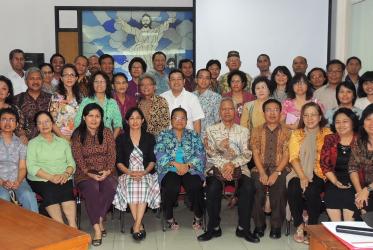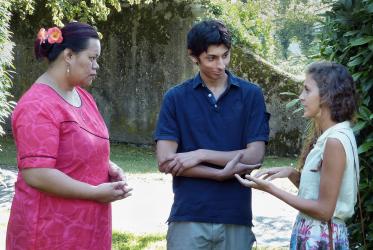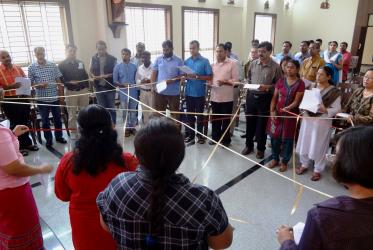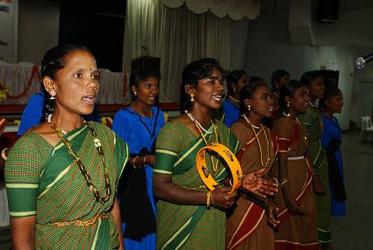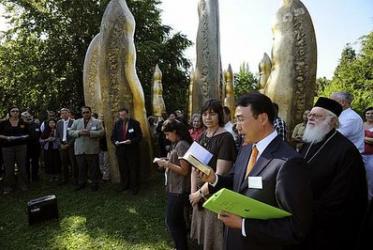Displaying 201 - 213 of 213
27 September 2013
Consultation brings rights of religious minorities into focus
18 September 2013
Youth build multi-faith community in Bossey
28 August 2013
Indian churches reflect on the WCC assembly theme
26 August 2013
Condolences over the death of Prakai Nontawasee
10 July 2013
WCC expresses condolences at death of I. Jesudasan
18 June 2013
Churches engage in development dialogue on Africa
06 March 2013
Churches celebrate Week of Prayer for Christian Unity
23 January 2013
Churches must be "salt of the earth"
31 August 2009
